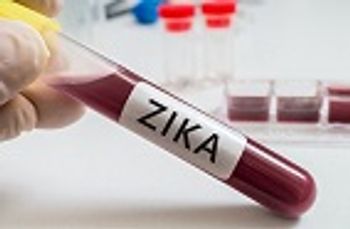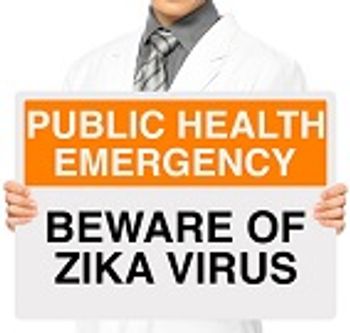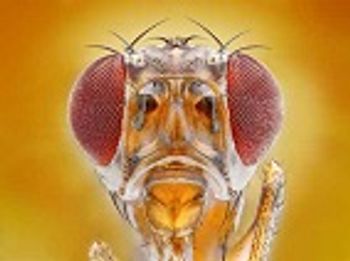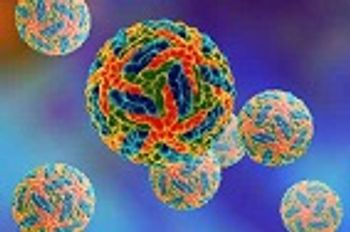
New information about how helminths regulate their hosts’ immune system may provide valuable insight for therapies to fight inflammatory diseases.

New information about how helminths regulate their hosts’ immune system may provide valuable insight for therapies to fight inflammatory diseases.

On Friday, August 26, 2016, the FDA amended its blood collection guidance, stating that all blood donations in US states and territories be tested for Zika virus infection, to ensure the safety of the nation’s blood supply.

Researchers from the Copenhagen University Hospital of Denmark find that individuals who are hospitalized with infections have an increased risk of suicide ideation and death; individuals infected with hepatitis and HIV or AIDS have the highest risk of suicide-related death.

On Monday, the US Food and Drug Administration skirted normal approval channels and issued Emergency Authorization for a Zika diagnostic test from the Swiss drug maker Roche.

Researchers still know very little about just how norovirus works, but a new study has shed light on how norovirus gets into cells and causes disease.

A new study finds that a balance of mutations, ones that impair the immune system’s ability to detect the HIV virus, and ones that impair the virus’s ability to replicate, will influence the speed of disease progression.

Studies demonstrate the effect of antibiotics on patients with hemolytic uremic syndrome and unique therapeutic challenges.

News has emerged of a case in Maryland involving the identification of Zika infection in a woman who had sexual contact with a man who did not know he was sick because he was asymptomatic.

Many Louisiana residents have been impacted by severe flooding. In response, the United States Department of Agriculture’s (USDA) Food Safety and Inspection Service is issuing food safety recommendations to guide those in Louisiana who have been affected.

A multidisciplinary team at Yale University School of Medicine have created a mouse model for vaginal Zika virus infection.

A new study shows that detecting and isolating Clostridium difficile carriers when they are admitted to hospitals can significantly reduce the incidence of new infections from the pathogen.

Individuals who handle foods in the course of their work, as well as those working in healthcare settings, have a higher risk for infection with highly contagious, gastroenteritis-inducing noroviruses when an outbreak occurs where they work.

A new study found that parents are more likely to support making human papillomavirus (HPV) vaccinations mandatory for school enrollment, if they are able to opt-out.

With 43 “local” cases of Zika virus infection now reported in Florida, and as far north as St. Petersburg, health officials in other Gulf states are ramping up responses in the event of potential outbreaks—even as there remains some disagreement as to the true nature of the threat of local transmission in the United States.

In the battle against drug-resistant pathogens, genetic research holds promising answers to our toughest threats. A new study shows that the best tool for treating Clostridium difficile infections could be within the genome of the bacteria itself.

New study reveals two new types of Salmonella associated with deadly infections in Africa. These types are genetically different from the western Salmonella Enteritidis.

By using a fruit fly model of human papillomavirus (HPV) induced human cancer, a team of researchers from the University of Missouri hope to better understand the mechanism that allows HPV to cause cancer as well as identify therapies that can potentially treat HPV-induced cancers.

Sage Products has expanded a worldwide recall to include specific lots of impregnated cloth topical skin products.

New research from the Imperial College of London now offers a promising novel approach in the fight against methicillin-resistant Staphylococcus aureus (MRSA), and their findings are decidedly salty.

Honeywell announced a voluntary recall of one production lot of Eyesaline Eyewash as a precautionary measure.

Cross-contamination of eggs is believed to have been the cause of a Salmonella outbreak from an Australian hotel.

Public health experts are predicting that there will likely be localized cases of the virus in flood-ravaged Louisiana as well as in Texas before the end of the summer.

The Virginia Department of Health has issued a warning stating that there is an increased risk of hepatitis A in the state of Virginia that may potentially link back to frozen strawberries sourced from Egypt.

As the rise of antibiotic-resistant bacteria leads to higher rates of life-threatening infections from pathogens such Clostridium difficile and methicillin-resistant Staphylococcus aureus (MRSA), researchers are increasingly looking to probiotic treatment as an important part of fighting infections.

A new study conducted by the University of Maryland shows that the majority of the people who think that they are allergic to penicillin are not; increased access to testing within hospitals can improve treatment.

A traceback investigation has found that raw scallops have contributed to the hepatitis A outbreak in Hawaii.

Wound care is challenging in today’s era of antibiotic-resistant bacterial infections, but healthcare practitioners treating infectious wounds have some tiny allies.

Researchers analyzed soluble forms of the B cell antigens CD27 and CD38 (sCD27 and sCD38, respectively) in the plasma of children with dengue and have suggested a role for these soluble forms as biomarkers of progression of the disease.

A new model of the within-host evolutionary arms race between viral pathogens and the adaptive immune responses intended to fight them suggests that vaccines based on genetically diverse sets of viral antigens may be more likely to stimulate the production of antibodies capable of neutralizing broad panels of virions.

A new study conducted by an Ebola diagnostic laboratory in Liberia has found that there is a connection between the survival of individuals with Ebola and co-infection with Plasmodium parasites that cause malaria.